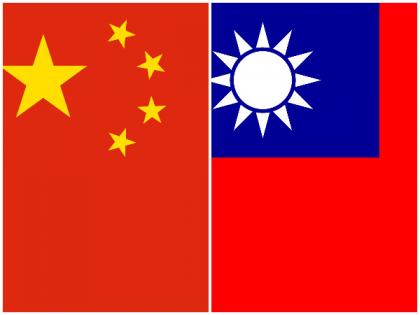China-Taiwan conflict could lead to intense trade disruption
By ANI | Published: July 21, 2022 01:53 PM2022-07-21T13:53:35+5:302022-07-21T14:00:07+5:30
International businesses are assessing the implications for global trade following possible intense disruption of trade in the event of an escalation of conflict between Taiwan and China.

China-Taiwan conflict could lead to intense trade disruption
International businesses are assessing the implications for global trade following possible intense disruption of trade in the event of an escalation of conflict between Taiwan and China.
This comes after the conflict between Russia and Ukraine led to a disruption in the supplies of oil, gas and wheat along with a price surge all across world.
Asia-Pacific supply chains is expected to enter a period of intense disruption and reconfiguration if a conflict between China and Taiwan occurs, an article in The Singapore Post said quoting China Neican, a current affairs website.
Even though Taiwan and China's conflict can have many likely scenario, several western and Asian analysts have predicted that the end result would be the same and will "involve an economic or military blockade of Taiwan or its outlying islands".
The economic or military blockade will prevent Taiwan from accessing the freight supply routes by sea. These routes will involve the ones passing through the Strait of Malacca, which is a trade chokepoint between the Malay Peninsula and Sumatra, and Luzon Strait, south of Taiwan's main island of Formosa, it added.
The telecommunication and financial services in Taiwan will be disrupted if a blockade occurs in the Luzon Strait as there are several of fibre-optic cables running through the trait which connect China, Japan, Hong Kong and Taiwan with the United States.
The economy of Taiwan will weaken if the Strait of Malacca is blocked as it would prevent the island nation from exporting semi-conductor and sporting goods to the United States and Europe causing them to languish in the ports.
"China will likely conduct denial of service cyber-attacks on critical Taiwanese infrastructure as part of a hybrid warfare strategy, compounding logistical difficulties for businesses. As a result, increased freight costs and circuitous supply routes would quickly ramp up inflationary pressure on consumer technology and renewable energy products," the publication said quoting China Neican.
Meanwhile, several Japanese industrialists and traders have started noticing "growing risks in China as supply chain disruptions from strict COVID-19 restrictions and mounting tensions over the Taiwan Strait loom large over the supersized market," Nikkei Asia said.
The example of Ukraine and Russia are being used to display the devastating realities of war and to make the people in Taiwan submissive.
Consequently, the people of Taiwan have made local efforts to protect themselves from an uncertain future by conducting workshops to teach and empower people to survive in warfare while waiting for government resources.
The increasing aggression by China has caused the Taiwanese people to prepare for the unknown even though a peaceful resolution can still be attained.
Taiwan and mainland China have been governed separately since the defeated Nationalists retreated to the island at the end of the Chinese civil war more than 70 years ago. But China's ruling Chinese Communist Party (CCP) views the self-ruled island as part of its territory despite having never controlled it.
Beijing has not ruled out military force to take Taiwan and has kept the pressure on the democratic island over the past few years with frequent warplane flights into the island's ADIZ.
An ADIZ is unilaterally imposed and distinct from sovereign airspace, which is defined under international law as extending 12 nautical miles from a territory's shoreline.
( With inputs from ANI )
Disclaimer: This post has been auto-published from an agency feed without any modifications to the text and has not been reviewed by an editor
Open in app